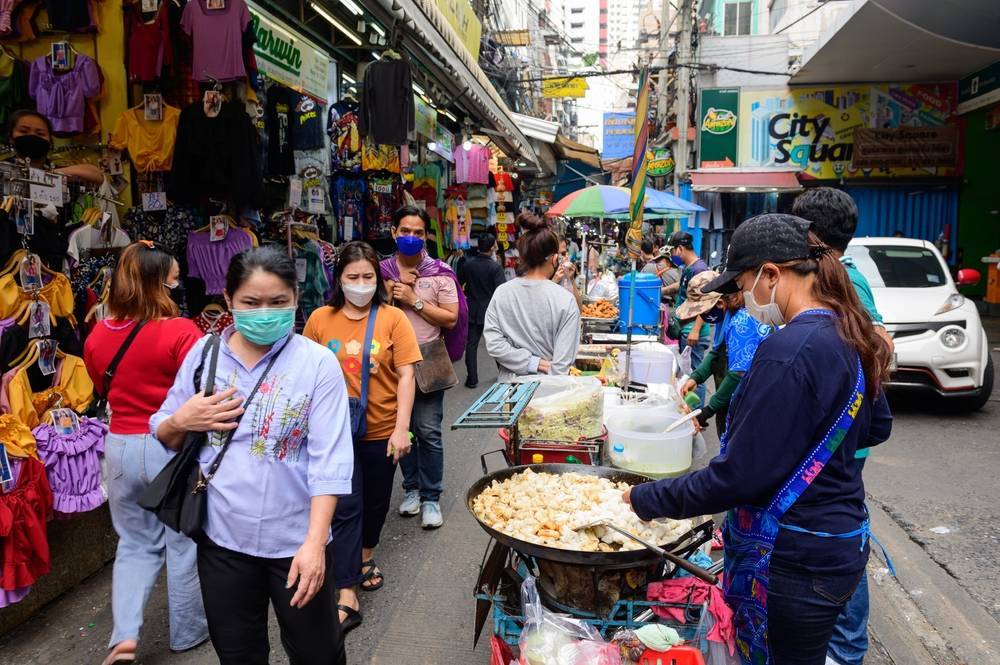Medical Channel Asia presents the weekly Asian medical news bulletin, bringing you essential health news from across the region. This week’s bulletin will focus on dengue, HIV and sulphur poisoning.
Thailand
Thailand has seen a significant rise in dengue cases this year, with 18,173 cases recorded from January to May, marking a 4.2-fold increase compared to the same period last year and representing the highest caseload in three years. The increase has resulted in an average of 900 infections per week. It also resulted in 15 deaths in the year’s first five months.
Bangkok has the highest number of cases, followed by Trat, Nan, Chanthaburi, Rayong, and Mae Hong Son. Children aged five to 14 are the most affected, followed by the 15-24 age group. The Public Health Ministry warns that dengue cases usually rise between June and August during the rainy season. The ministry is urging the public to protect themselves from mosquito bites and to destroy mosquito habitats to prevent the spread of dengue. Households are advised to drain any standing water on their property to stop mosquitos from breeding.
Philippines
Increased volcanic activity has led to the evacuation of residents living near Mount Mayon. Mount Mayon is one of the most active volcanoes in the country. More than 12,800 people, mostly from farming villages near the volcano, have been moved to evacuation centers, with thousands potentially needing relocation. Health Secretary Teodoro Herbosa warned of the health risk of inhaling sulphur dioxide gas or ash particulates from the eruption. Despite the risk, many local residents accept the volcano’s activity as a part of their lives.
Malaysia
The Ministry of Health (MoH) in Malaysia is planning to conduct a study this year to reassess the country’s need for various categories of health professionals. Health Minister Dr. Zaliha Mustafa announced a study that will consider the impacts of policies implemented after 2016 and the health needs of the population. The intent is to more accurately map and project the distribution and demand for health personnel nationwide. Dr. Zaliha emphasized that the MoH will continue discussions with the Public Service Department to ensure alignment between health policies and public needs. The findings from this study will form an evidence-based foundation for future strategic implementation plans.
Vietnam
A 45-year-old Canadian man, CD Washington, has successfully regained his ability to walk after eight years of leg paralysis. The treatment was carried out in Vietnam’s Military Hospital 175 using traditional medicine techniques. After three months of intensive therapy including acupuncture, acupressure, and daily physical therapy, Washington was able to walk independently. Despite being discharged, he continues to receive outpatient treatment and his condition keeps improving.
Singapore
The number of people diagnosed with HIV in Singapore fell for the third consecutive year in 2022.Doctors diagnosed 202 individuals with HIV, a drop from 250 in 2021. Additionally, they detected more than half of these cases at a late stage. The Ministry of Health (MOH) disclosed that they found 53% of the new cases during medical care. Singaporeans and permanent residents receive subsidized treatment As of 2022, close to 7,000 people in Singapore were living with HIV. The MOH advises that the most effective way to prevent HIV infection is to remain faithful to one’s partner and avoid casual sex or sex with sex workers. Doctors diagnosed 94 people with HIV in the first five months of 2023.
Indonesia
The Health Ministry of Indonesia announced that it has approximately four million doses of COVID-19 vaccines in storage, mostly domestically produced. In addition to these, the ministry has about 100,000 doses of imported Pfizer and AstraZeneca vaccines. The ministry is distributing these vaccines to the public for free while an ongoing study investigates the potential for paid vaccinations. The initiative is part of the efforts to prevent COVID-19 transmission during the endemic transitional period. The ministry is waiting for President Joko Widodo’s decision on the revocation of the Presidential Decree on the public health emergency for COVID-19. The president’s decision will outline regulations on paid vaccinations and the care of COVID-19 patients in hospitals. It will also return the responsibility for controlling the pandemic to the public.
Designers are actively working on the regulations. Thereafter, they will implement them by providing assistance to beneficiaries of the National Health Insurance Program.
We will be back next week with more healthcare news from the region

